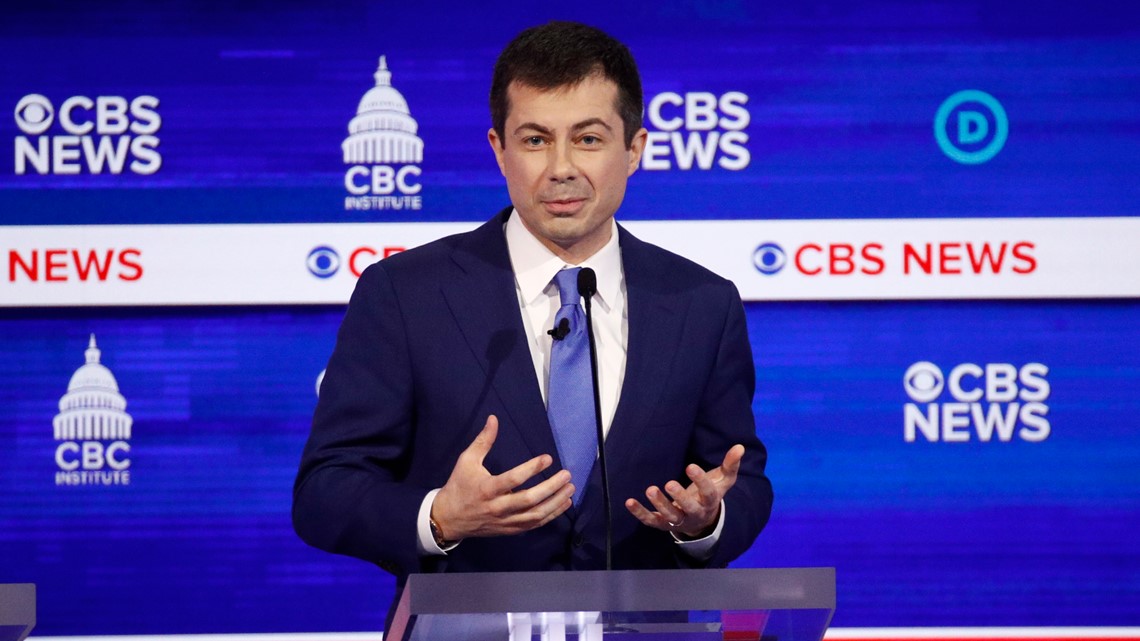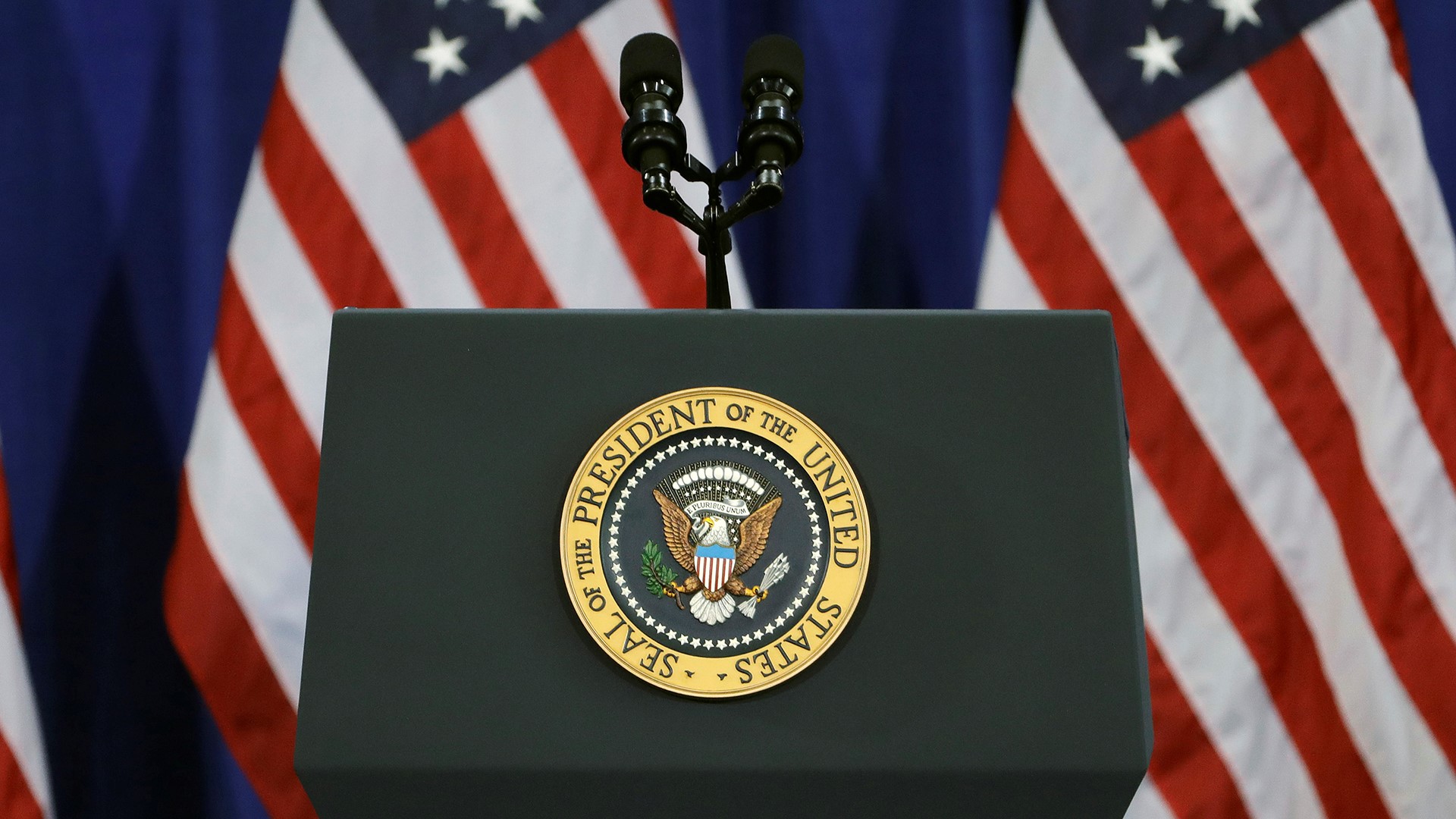Former South Bend, Indiana, Mayor Pete Buttigieg shocked the 2020 Democratic presidential campaign announcing in the city Sunday night that he's ending his run for the White House.
It immediately led to people speculating where his voters will go on Super Tuesday and how it will change the delegate math.
Despite a virtual tie in Iowa and a strong second-place finish in New Hampshire, Buttigieg struggled in the more diverse states of Nevada and South Carolina.
President Donald Trump celebrated the Buttigieg announcement, tweeting that "All of his SuperTuesday votes will go to Sleepy Joe Biden" and that it's the beginning of trying to take Sen. Bernie Sanders "out of play."
By the way the tweet is worded, that is not true. Trump said all of Buttigieg's "votes" will go to Biden. It's not clear if the president meant "voters" or if he's trying to convince people their votes for the former mayor will automatically be given to Biden. Regardless, any votes cast for Pete Buttigieg in previous states or going forward will go to Pete Buttigieg. They do not go to Joe Biden.
Trump has suggested in recent weeks that the Democratic party may try to put its thumb on the scales to keep Sanders from winning the nomination.
The more pertinent question is -- who will Buttigieg voters support going forward?
According to the most recent Morning Consult poll of more than 13,000 Democratic primary voters, 21% of Buttigieg supporters say Sen. Bernie Sanders is their second choice. That's followed by former Vice President Joe Biden and Sen. Elizabeth Warren with 19% each, then former New York City Mayor Michael Bloomberg with 17%. So, all of the top remaining candidates are likely to see some help from Buttigieg supporters.
The caveat is that the poll was taken last week, before the South Carolina primary that Biden dominated. That performance could skew voters' thinking and who they support. Most polls show primary voters say a candidate that can beat Trump is more important than a candidate who shares their values.
What will Buttigieg's departure mean for Tuesday, in which more than 1,300 delegates will be at stake in 14 states and American Samoa? We'll only have to wait about 48 hours to find out.
It could be the most significant for California, where 415 national delegates are at stake. At least two recent polls predicted Sanders was the only one in line to earn more than 15% of the statewide popular vote. Because a minimum of 15% is needed to earn delegates to the national convention, Sanders could walk away with more than 300 statewide delegates in California, vaulting him to a huge lead (delegates are also given out by congressional districts, so other candidates could get a few here and there if they reach 15% in those districts). But with some of Buttigieg's voters likely going to Biden, Warren and Bloomberg, they could cut into that potential Sanders statewide landslide -- but likely not enough to prevent Sanders from winning the Golden State easily.
This time last week, an analysis of polls by fivethirtyeight.com had Sanders winning 13 of the 15 Super Tuesday contests. As of Sunday evening, following the exits of Buttigieg and Tom Steyer as well as Biden's huge win in South Carolina, Sanders is projected to win eight. Biden is projected to win six, mostly in the south. The only other candidate projected to win a state is Sen. Amy Klobuchar in her home state of Minnesota, but Sanders is within striking distance there.
There are a couple of X-factors here. One is Bloomberg. He is competing for many of the same voters as Biden. While polling does not appear to show him making a huge dent, there is a chance for him to potentially take Oklahoma from Biden.
The other is early voters. In California, for example, at least 2.7 million people have reportedly already turned in their ballots as of last Thursday, according to the California secretary of state. That's more than 10% of the state's registered voters. They made up their minds before Biden's win and before Buttigieg's exit. The same would go in other states where early or absentee voting is available.
There is another big primary contest on March 10 with six states and Democrats Abroad voting. Sanders is projected to take five of those while Biden is projected to win two, according to fivethirtyeight.com. But if other remaining candidates have a bad night on Super Tuesday, they could choose to bow out as well.
Where do the supporters of other leading candidates say they'd go next? According to Morning Consult, 40% of Warren supporters say Sanders is their second choice, followed by 18% for Biden and 18% for Buttigieg. Among Bloomberg supporters, 32% said Biden was their second choice followed by 27% for Sanders.
For Biden supporters, 29% say Sanders is their No. 2 choice followed by Bloomberg at 25%. As for Sanders followers, 35% say Warren is their next choice followed by Biden at 23%.
1,991 national delegates are needed to win the nomination at the Democratic National Convention in July. If no one has that, then it's likely to result in a brokered convention -- leading to the possibility that the candidate who came in with the most votes and the most delegates does not win the nomination.



